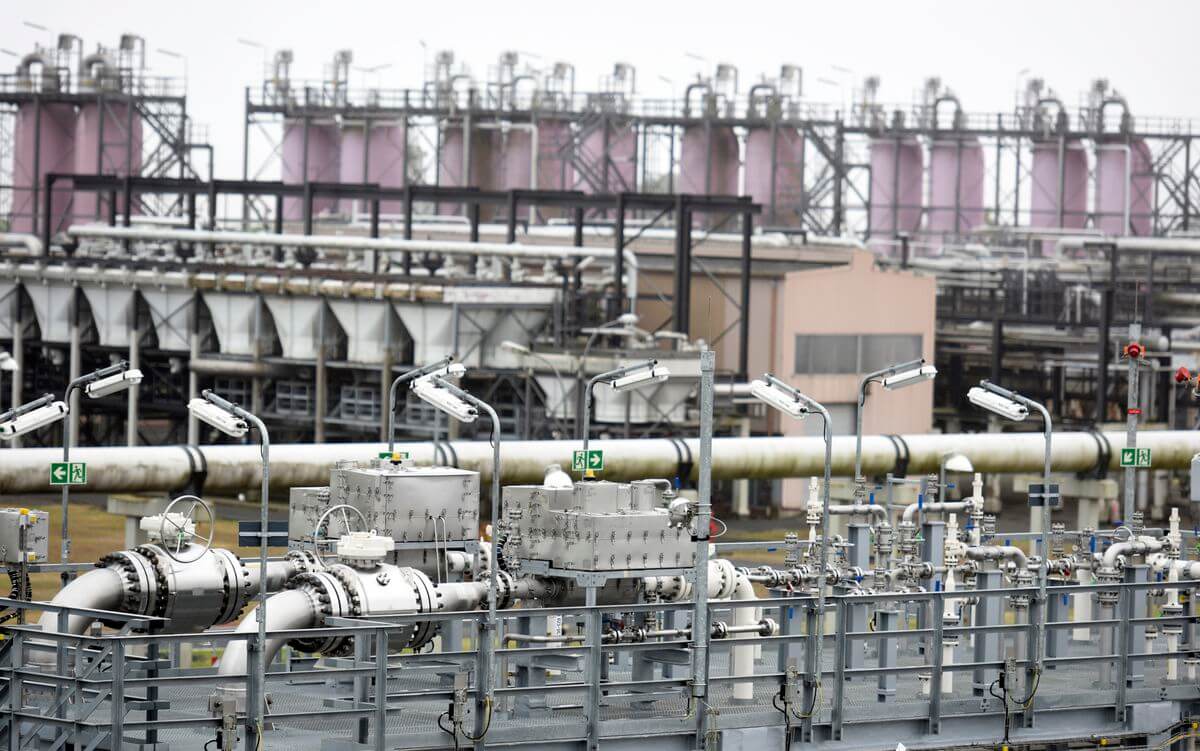Norway has become the European Union’s (EU) biggest supplier of natural gas amid the continued fallout with Russia over the Ukraine war.
The Scandinavian country has increased gas production by 8% to 122 billion cubic metres (bcm) this year, beating a five-year-old record. According to Statistics Norway, its gas export value hit a historic $13.26 billion in July amid soaring prices, four times higher than in July 2021, and gas volumes sold grew by 5.7% to 10.2 bcm.
Norway has replaced Russia as Germany's largest gas supplier. A historic milestone.
— Samuel Ramani (@SamRamani2) August 15, 2022
Senior adviser for external trade at Statistics Norway Jon Olav Roerhus attributed the “exceptionally high export value we are now experiencing” to a sharp decrease in Russian gas supplies to the EU via the Nord Stream 1 pipeline, which is currently operating at 20% capacity.
To this end, Norwegian Minister of Petroleum and Energy Terje Aasland has vowed to keep gas production high until the end of the decade. “I expect that we can maintain the production levels we are at now until 2030,” he told Reuters, adding, “We see that there are projects and also plans for development and operation coming now that can help maintain the high gas volumes going forward.”
Aasland is confident about the demand for Norwegian gas for the long-term in the EU after the bloc signed an agreement to boost gas deliveries in June, which he said sent an “important message.” Oslo has also been diverting more gas for exports instead of releasing it back into the ground to step up crude oil production and meet Europe’s demand.
Norway expects to maintain current level of natural gas output through 2030
— Market Rebellion (@MarketRebels) August 23, 2022
Europe imports 40% of its energy requirements from Russia. Though the EU banned 75% of Russian oil imports and set a 90% target for the end of the year in May as part of its sanctions package, it did not include any restrictions on Russian gas, as it is critical to run factories, generate electricity, and heat homes. In retaliation, however, Russia stopped gas supply to Bulgaria, Poland, Finland, Netherlands, and Denmark, which the EU termed “blackmail.”
Last month, the EU agreed to voluntarily cut its natural gas demand by 15% from August to March to “prepare for possible disruptions of gas supplies from Russia that is continuously using energy supplies as a weapon.” As per European Commission, the 15% reduction target would ensure that the EU could avoid using 45 billion cubic metres of gas, which would see the bloc through a cold winter.
Furthermore, Russian state-owned energy company Gazprom announced a three-day shut down of gas supply through the Nord Stream 1 pipeline from August 31 to September 2 last week, citing “maintenance and scheduled preventive work.”
Against this backdrop, the bloc has been trying to diversify its energy supplies to reduce its reliance on Russian energy.
In this respect, it concluded a deal in June that will allow Israel to send “significant” exports of natural gas to Europe via Egypt and pave way for a “Mediterranean-wide agreement.” Furthermore, the EU last month signed a strategic energy partnership with Azerbaijan to double natural gas imports from the South Caucasus country by 2027. Likewise, France established a Comprehensive Strategic Energy Partnership with the United Arab Emirates while Italy signed an energy deal with Algeria that makes the North African country its largest gas supplier.
Australia, too, remains in talks to provide Europe with liquefied natural gas (LNG).
Fascinating suggestion here......Europe should ask Norway to cut the price of gas. Would be interesting to see how a suggestion like this is received domestically https://t.co/8sissDl5Py
— Ketan Joshi (@KetanJ0) August 18, 2022
Following the Russian invasion of Ukraine, gas prices have repeatedly broken multiple records and nearly tripled. However, Norway does not plan to sell gas at below market price. In this respect, Aasland called the market “predictable,” remarking, “When there is scarcity, prices are high. That also contributes to increasing production and steers the gas to the markets that need it most.”
“To disturb the market and make... rules that look good right now could contribute to ruining some of the ground for building stability and trust over time,” he noted, adding that no discussions are being held regarding “extra taxes” despite its energy companies incurring a high cash flow. “The additional revenue companies are potentially making now is forming the basis for future investments and the basis for the entire transformation of the energy sector,” Aasland claimed.
On this front, Norwegian state-owned energy company Equinor plans to enhance investment in renewable energy and low-carbon technologies in order to become a “broad energy” company. To this end, it has increased the search for new resources to meet Europe’s demand for hydrocarbons.
During a meeting with the five Nordic nations—Norway, Finland, Sweden, Denmark, and Iceland—earlier this month, Norwegian Prime Minister (PM) Jonas Gahr Støre noted that they should focus on renewable energies, including wind and solar, acknowledging, “We all struggle with increased energy prices.”

